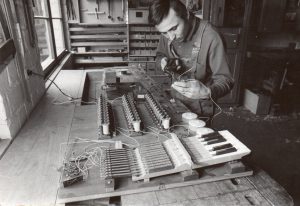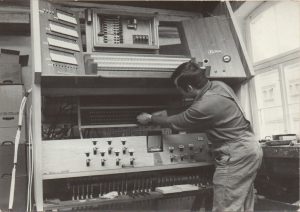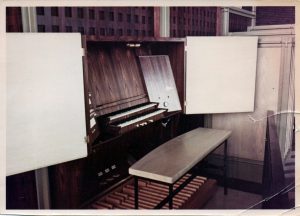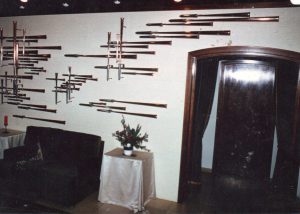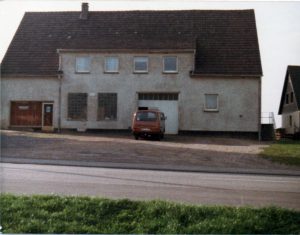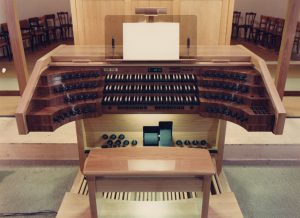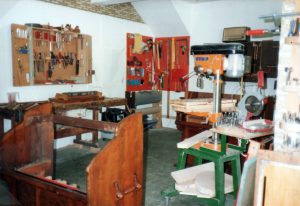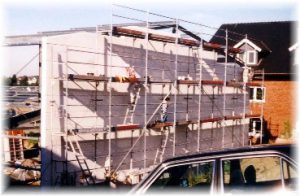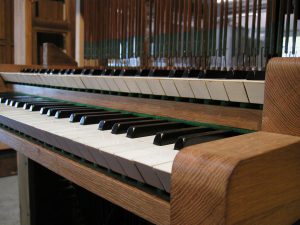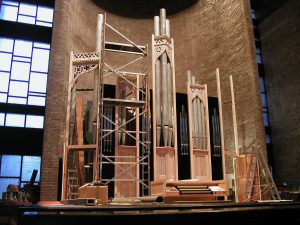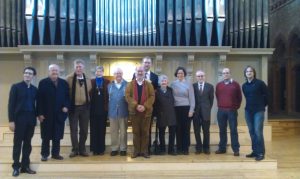
History
-
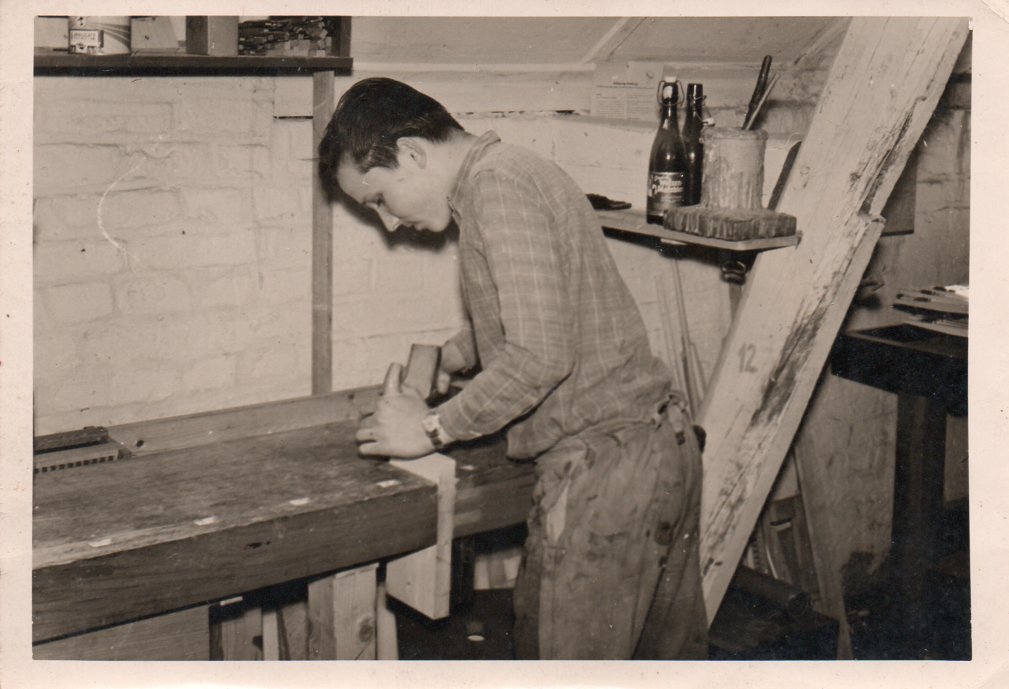
Prologue - Shop window dresser or pipe organ builder...
1955 - 1977This was certainly the well-intentioned advice of the employment officer. Luckily, 15 year old Siegfried Schulte decided on an apprenticeship at organbuilding company Willi Peter in Cologne.
Business is thriving and Siegfried Schulte becomes more and more involved in projects like St. Jacobi / Hamburg, St. Sebald / Nürnberg, Osaka, Lisbon and much more.
His precise work and creative solutions made him a precious employee.In 1978, after 25 years in the company Siegfried Schulte made the decision to run his own business: Orgelbau Schulte was founded!
Orgelbau Schulte was founded.
1955Shop window dresser or pipe organ builder... - 1977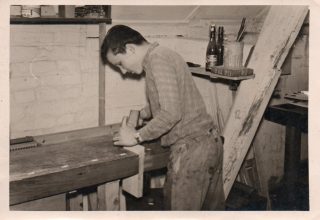
1955 - 1977 -
This was certainly the well-intentioned advice of the employment officer. Luckily, 15 year old Siegfried Schulte decided to become an organ builder...
-
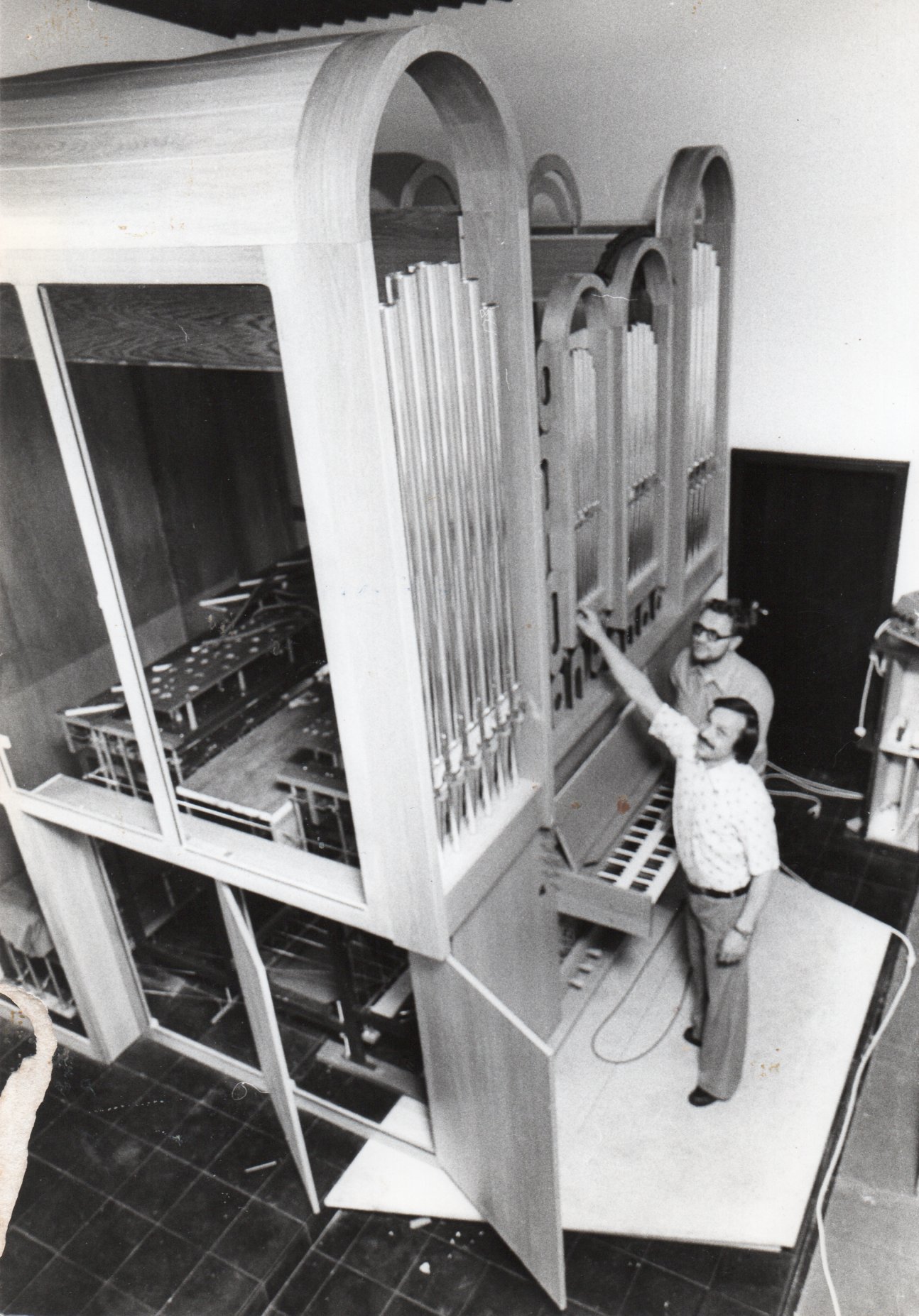
Finally the own business!
1978 - 1985Improvisational skills were required in the first years. Disused stables served as the very first workshop. And Siegfried Schulte pushed on the market with new ideas. One of them was the "Wandschmuckorgel" - the wall decoration organ. The concept was based on the idea of developing an organ for basically everyone being attractive in terms of music and design.
Some ideas have been realized on several house organ projects.
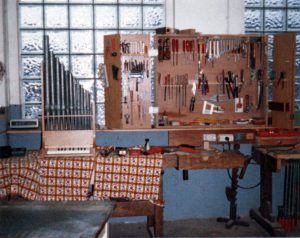 However, very soon after the construction of the first larger church organ (Grunewald, end of 1978, see photo left), the young company Orgelbau Schulte became a serious alternative in the construction of church organs. The customers were convinced by the level of quality. Further orders followed and in 1979 Siegfried Schulte moved into his first workshop in Odenthal-Scheuren.1978Finally the own business! - 1985
However, very soon after the construction of the first larger church organ (Grunewald, end of 1978, see photo left), the young company Orgelbau Schulte became a serious alternative in the construction of church organs. The customers were convinced by the level of quality. Further orders followed and in 1979 Siegfried Schulte moved into his first workshop in Odenthal-Scheuren.1978Finally the own business! - 1985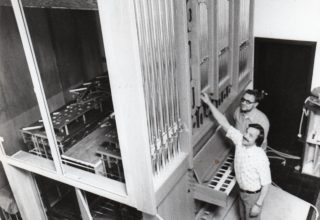
1978 - 1985 -
Siegfried Schulte pushed into the market with fresh ideas. One of them was the "Wandschmuckorgel" - a playable wall decoration organ, offering a home organ for everybody, being attractive in terms of both music and design. But things turned out differently...
-
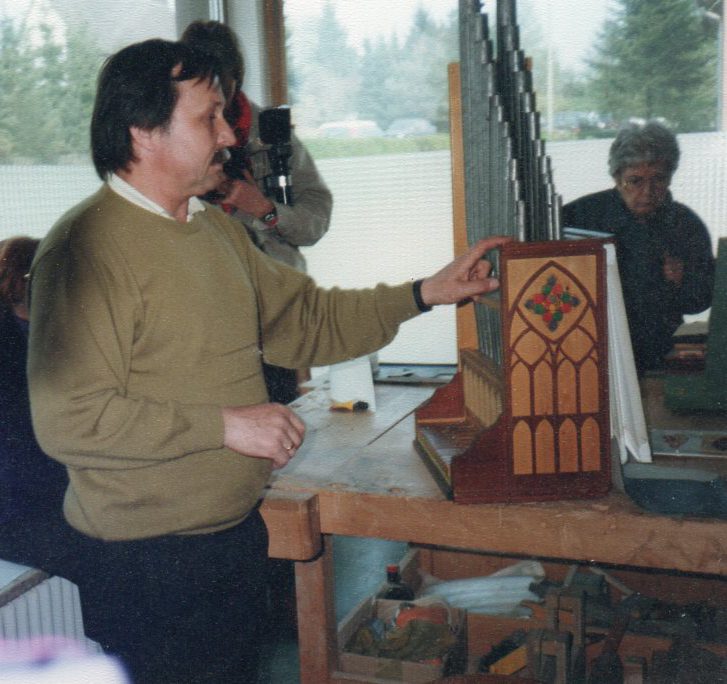
The company is establishing itself
1986 - 1996In the following years, the company is experiencing steady growth. Organ after organ is built, the good reputation rising with each new building.
1986 the company moved to Kürten-Bechen, where the opus maximum came to life. (Köln-Porz, St. Josef, 3/43)
1986Schulte is establishing itself - 1996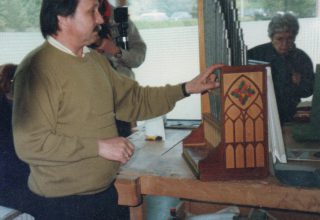
1986 - 1996 -
The company grows and establishes itself, new organs being built every year. And in new workshop rooms Schulte's opus maximum comes to life...
-
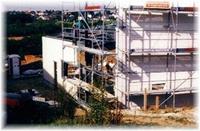
Next generation
1997 - 2005.
Oliver Schulte, son of Siegfried Schulte, decided to follow his father's footsteps continuing the company after finishing school. Siegfried Schulte took the opportunity to leave the rented rooms, building a new own workshop in Kürten-Herweg.1997 Oliver Schulte started his apprenticeship in the company of his father. In the same year the new workshop was erected.
.
In the following years, German organbuilders had to face consequences of the beginning austerity measures of the churches. Nevertheless, Orgelbau Schulte still managed to have one new organ per year. In 2003 the company had the privilege to restore one of the first Klais organs - a job which quickly drew attention.This project was influenced by Oliver Schulte, who was able to gain valuable knowledge restoring of historical instruments by working at renowned company Vier in 2001.
1997Next generation - 2005
1997 - 2005 -
Second generation at the start, the new own workshop in Kürten-Herweg is erected. But on the German organ building sky the first clouds are rising ...
-
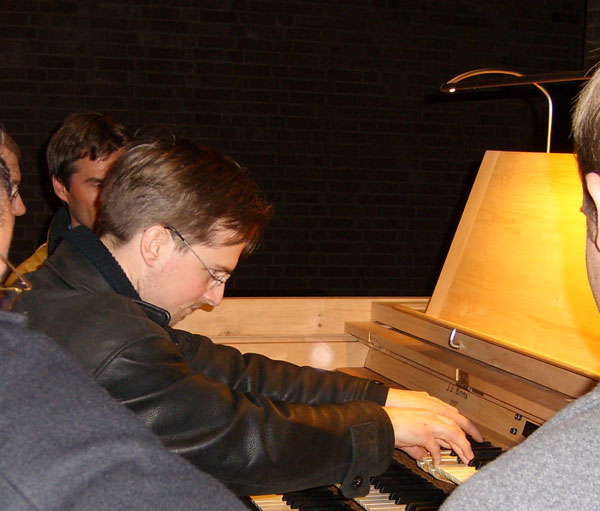
Changes
2006 - today2006 Oliver Schulte, master organ builder and MBA (Betriebswirt HWK), takes over his father's company.
However, the change in German organ building had influence on Orgelbau Schulte as well. After a contract fell through in 2008 with the organ already under construction, Orgelbau Schulte was facing a serious crisis.
Profound changes in the corporate structure were the result, which were hard, but necessary in order to prepare the company for the future. The number of new organs had decreased dramatically throughout Germany. But with the Binns-Schulte organ in Bonn-Limperich the company became nationally recognized almost over night.
This trend was strengthened with the import and restoration of the historic American Steere & Turner organ (1869) for the St. Maternus, Cologne-Rodenkirchen. This instrument has also been the subject of the lecture given by Oliver Schulte in September 2011 at the Organ Symposium in Berlin (10th anniversary of the Hook organ). Further nationwide inquiries and projects based on the "English concept" in Germany and abroad followed.
Mastering this crisis has been hard work - but it was surely worth the effort.
Within a few years much has changed. What has not changed are the high quality standards, the search for new solutions and the friendly and honest cooperation with customers. In addition, an international network has developed in recent years to England, Ireland and the USA, not least because of the intense use of social media.
2006Changes - today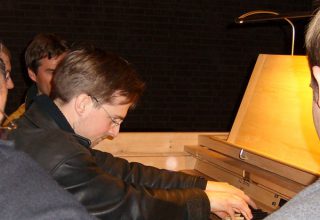
2006 - today -
2007 Oliver Schulte takes over the company and faces massive challenges...
-
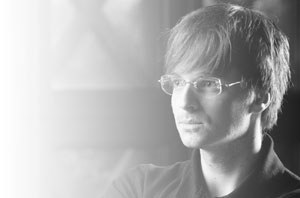
A look into the crystal ball
tomorrow...The organbuilding business is facing difficult times. Structures change, priorities will be redefined.
The organbuilding business has to adapt to that, facing these challenges in a self-critical way.What does that mean to our company?
We must continue to search for concepts and solutions that live up to these circumstances, as well as the willingness to open our eyes and not to freeze in old ways of thinking.
Thus, we will focus on expanding our concept of creating artistic and technical landmarks. Due to the dwindling market, regional boundaries must be overcome.
Especially in dark times light moments shine even brighter.
And it is our goal to achieve these moments!By doing so, we must be aware of our greatest honor, but also greatest responsibility:
The pipe organ stands for centuries.
tomorrow...A look into the crystal ball
tomorrow... -
The organbuilding business is facing difficult times. Structures change, priorities are redefined. What does that mean for us?



